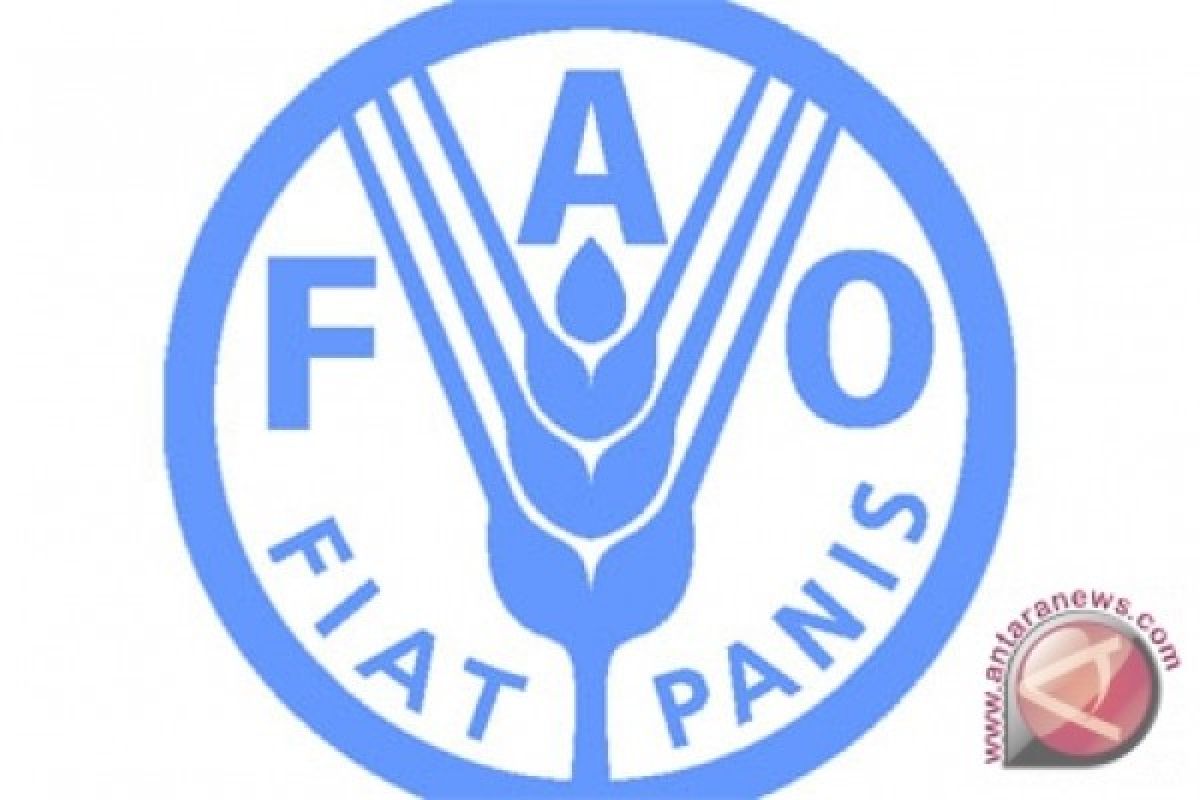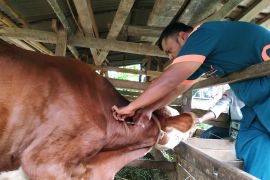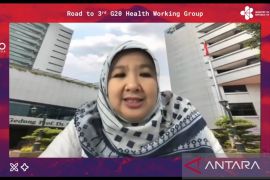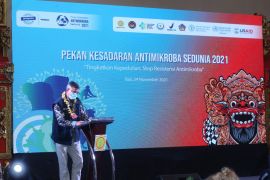Recent estimates suggest that the human fatality rate related to antimicrobial resistance could reach 10 million per year by 2050 if urgent action is not immediately takenBogor, W Java (ANTARA) - Indonesia has taken a positive step by reviewing the implementation of the 2017-2019 Antimicrobial Resistance National Action Plan (NAP), and both FAO and WHO are supporting the country's endeavor to control antimicrobial resistance (AMR).
The importance of controlling AMR for Indonesia and other countries was revealed by the Food and Agriculture Organization of the United Nations in its press statement that ANTARA received here on Tuesday.
The inappropriate use of antibiotics can make bacteria resistant to it. As a result, antibiotics will no longer be effective in treating diseases and this condition will trigger the emergence of AMR.
"Recent estimates suggest that the human fatality rate related to antimicrobial resistance could reach 10 million per year by 2050 if urgent action is not immediately taken," the FAO revealed.
The Indonesian Government has taken a positive step by reviewing the implementation of the 2017-2019 NAP, which is a follow up from the Global Action Plan that was issued after AMR was first brought to the attention of the United Nations General Assembly in 2016.
"Antimicrobial resistance is a cross-sectoral problem that requires the collaboration of different parties," Ni Made Ria Isriyanthi, head of the Sub-directorate of Veterinary Drugs Control, was quoted as saying in her speech on behalf of the Directorate General of Livestock and Animal Health Services, Ministry of Agriculture.
This Indonesian AMR Action Plan was prepared by the Coordinating Ministry for Human Development and Cultural Affairs, Ministry of Health, Ministry of Agriculture, Ministry of Marine Affairs and Fisheries, and the Ministry of Finance.
During its implementation, additional institutions will also be involved, especially to increase public awareness, Isriyanthi said at an evaluation meeting that took place in Jakarta on May 2 and 3.
Meanwhile, at the meeting, Hari Paraton, a top official of the Ministry of Health's Antimicrobial Resistance Control Committee, warned that controlling AMR was not just the obligation of the country.
Instead, it was a response to the needs of a country. "Therefore, we must have a plan of action that involves multi-sectoral actors," he said, adding that the danger of AMR is a global health issue, the impact of which has already been seen in Indonesia.
Klara Tisocki, WHO (World Health Organization) Regional Advisor for Southeast Asia, applauded the 2017-19 AMR National Action Plan.
"This Action Plan includes five broad and comprehensive objectives. In the next phase, Indonesia might want to focus and prioritize some of the work needed to accelerate progress," Tisocki said.
The five strategic objectives include increasing public awareness and understanding, strengthening surveillance systems, reducing and preventing infections, optimizing the use of antimicrobials, and ensuring sustainable investments in new health technologies to combat AMR, Tisocki said.
Throughout the evaluation meeting which was supported by FAO, WHO, and funded by USAID, representatives from seven ministries and agencies discussed what activities had been carried out, the challenges faced, and made recommendations for the new 2020-2024 NAP on AMR control.
Ministries and government institutions have carried out various activities, although their impact needs to be strengthened.
Some of these achievements should be highlighted, especially the Minister of Agriculture Regulation No, 14/2017 which prohibits the use of antibiotics as livestock growth promoters, raising the awareness of the public, academics and health workers through the GEMA CERMAT campaign and collaboration with 11 Indonesian Faculties of Veterinary Medicine.
Responding to the results of this evaluation, James McGrane, Team Leader of the FAO Emergency Centre for Transboundary Animal Diseases (FAO ECTAD Indonesia), called for immediate action to control AMR.
"Various studies have been carried out both at the global and national levels, and now, it is time for us to focus on actions and solutions. Animal and human health workers who serve at the front line of antimicrobial usage must promote the prudent use of antibiotics, while the community and farmers must seek advice from health care workers," McGrane said.
Editor: Suharto
Copyright © ANTARA 2019












